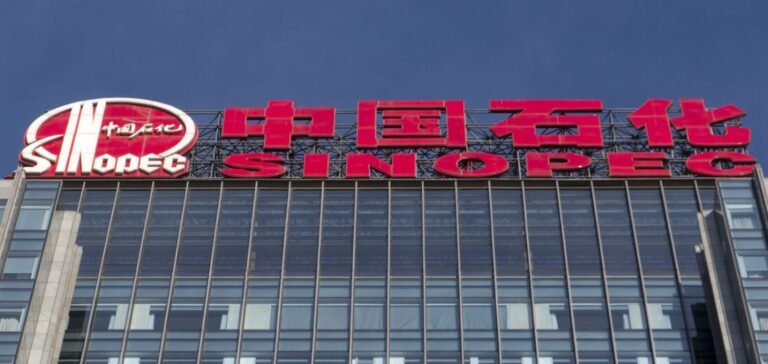China Petroleum & Chemical Corporation (Sinopec) disclosed its 2024 financial results, posting revenue of CNY 3.07 trillion (approximately USD 422.74 bn) under International Financial Reporting Standards (IFRS). Net profit attributable to shareholders amounted to CNY 48.94 billion (USD 6.74 bn), with earnings per share reaching CNY 0.404. The company confirmed a 75% dividend payout ratio, including share buybacks, and announced a proposed annual dividend of CNY 0.286 per share.
Increased production and refining volumes
Sinopec achieved record oil and gas equivalent output of 515.35 million barrels, including 254 million barrels of crude oil, representing a 0.9% year-on-year rise. Natural gas production totalled 1,400.4 billion cubic feet, an increase of 4.7%. The domestic oil and gas reserve replacement ratio reached 144%. Refined crude oil volumes stood at 252 million tonnes, while kerosene production grew by 8.6% over the same period.
Chemicals, exports and energy infrastructure
Annual ethylene production reached 13.47 million tonnes, and total chemical product sales stood at 83.45 million tonnes. Exports rose by 13.1%. Refined oil product sales totalled 239 million tonnes. Sinopec continued expanding its energy network, operating over 1,000 liquefied and compressed natural gas (LNG/CNG) fuelling stations and more than 10,000 battery charging and swapping stations.
Industrial innovation and technological output
The group commissioned the world’s first cyclohexene esterification hydrogenation unit for cyclohexanone production and launched a digital twin-based smart ethylene plant. It also completed China’s first factory-scale seawater-to-hydrogen demonstration project. In 2024, Sinopec filed 9,666 domestic and international patent applications, of which 5,550 were approved.
Technological initiatives and energy efficiency performance
Without claiming ecological positioning, the company advanced energy transition projects such as carbon capture, which rose 20.1%, and methane recovery, which increased by 9.4%. It reduced energy consumption by 4.9% per CNY 10,000 of output. New industrial chains are under development around hydrogen, biofuels, and carbon capture, utilisation and storage (CCUS), with 11 hydrogen distribution centres established nationwide.






















